Graham Reid | | 5 min read
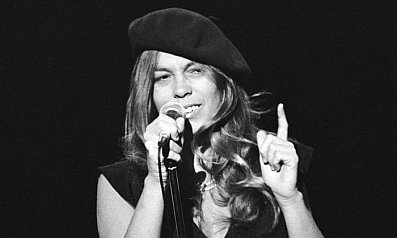
Taken together with Tom Waits' Blue Valentine, Rickie Lee Jones' huge selling self-titled debut album of '79 – which sprung her top five hit Chuck E's in Love – recorded their love affair at it poetic peak. Waits sang her favourite song Somewhere from West Side Story on his for her.
But the relationship dissolved quickly thereafter and, for her at least, painfully.
Her follow-up album Pirates of two years later in part addressed that period of their break-up and the emotional fallout for her.
By her account, the sudden success of Chuck E's in Love – about their mutual friend Chuck E Weiss – and the subsequent mega-sales of her debut drove a wedge into the relationship which was cracking a little anyway.
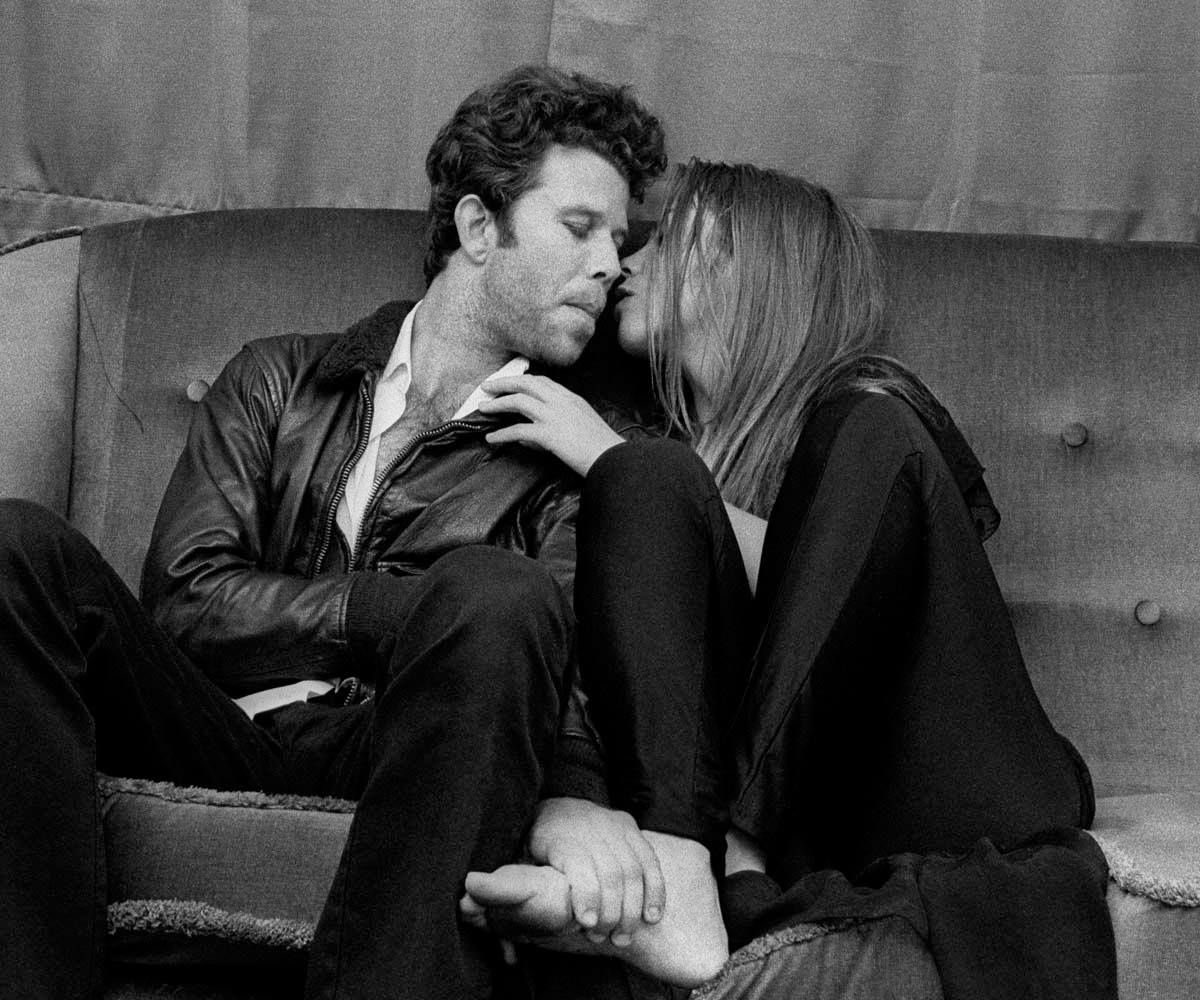 As she tells it, Waits had struggled for years as the romantic, doomed barfly singer-songwriter . . . and along came sassy and sensual Jones in her red beret with a breezy, upbeat hit and what seemed like overnight success.
As she tells it, Waits had struggled for years as the romantic, doomed barfly singer-songwriter . . . and along came sassy and sensual Jones in her red beret with a breezy, upbeat hit and what seemed like overnight success.
However Jones – who had been a teenage runaway, “I've been as far down as I can go and I made it out” – was now using heroin again, on the sly, and Waits started to withdraw from her.
The end was looming, they split and Waits met Kathleen Brennan, who would become his wife by the time Jones' Pirates was released.
Brennan introduced Waits to sobriety, broader musical influences and opened a door onto a way out of the increasing self-parody of the drunkard.
They went to New York and, for the sake of his creative and emotional growth, she cut off many of his running mates, Jones included.
“I felt bad that Tom had to exorcise me from his past as if I never existed. That hurt,” she said later.
However to cast him as the artist and her as the appendage is very wrong.
Jones was, and is, a very sophisticated songwriter (Lowell George thought enough of Easy Money from her debut to cover it for his solo album) and while she drew on Beat poets/Waits-style street images she'd actually lived on the streets in a way he hadn't.
She also looked to jazz artists like Sarah Vaughan, the soul-folk sound of Laura Nyro, had a love of Randy Newman and brought all that and more to her slurry, hipster vocals.
(Newman played on her debut and when interviewed about what he thought of the song he was on said, “Can't tell. Couldn't understand a word.”)
Jones was certainly a rare one and a few years ago Elsewhere caught her autobiographical story'n'song performance at the Sydney Vivid festival.
She was, as expected, somewhat flaky in her anecdotes and seemed either very stoned or quite eccentric. But her songs were extraordinary, and a number of her recent albums – notably Sermon on Exposition Boulevard and Balm in Gilead – are very much worth hearing.
But those had an outside theme embedded.
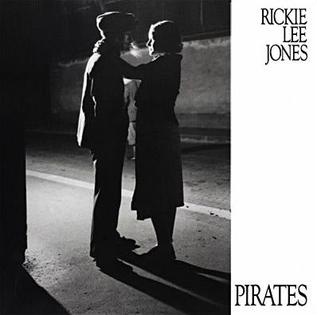 Pirates of 1981 which followed that breakthrough – which had win her a Grammy for best new artist and got her a full page coverage in Time before that debut was even released – was sometimes painfully autobiographical.
Pirates of 1981 which followed that breakthrough – which had win her a Grammy for best new artist and got her a full page coverage in Time before that debut was even released – was sometimes painfully autobiographical.
Anticipation was high and although Pirates didn't -- and couldn't in the absence of a hit single -- match sales of its predecessor it still sold well enough (top five in the US) and saw her extensively interviewed in Rolling Stone and NME (the latter devoting huge space to a review by Ian Penman).
It was an album which deserved the interest, and still does.
It starts slow and pained with the five minute We Belong Together which in places is more strained-soul spoken word than anything akin to the summery Chuck E's in Love which had already become something of an albatross of expectation.
As British reviewer Patrick Humphries noted, “her slurred delivery and the musical similarity tend to grate over the whole album. There's no denying the funky, sensual appeal of the disc, even if there's nothing as immediately appealing as Chuck E's in Love”.
Ah, the curse of the hit.
Pirates – with a stellar cast of studio professionals like Steve Gadd, Buzzy Feiten, Dean Parks, Neil Larsen, Randy Brecker and many more – was produced in LA by Russ Titelman and Lenny Waronker who give it too crisp and clean a sound.
But most of the songs are strong if somewhat freed from standard structures and she was still the street poet (the characters who populate Living It Up).
 But now she had some serious heroin addiction driving her inward, as witnessed by the eight minute Traces of the Western Slopes co-written with jazz musician and new lover Sal Bernadini (the subject of Weasel and the White Boys Cool on her debut).
But now she had some serious heroin addiction driving her inward, as witnessed by the eight minute Traces of the Western Slopes co-written with jazz musician and new lover Sal Bernadini (the subject of Weasel and the White Boys Cool on her debut).
It has an extraordinary, yes sometimes grating, delivery of lyrics which allude more than reveal and which comes with a slipping arrangement which never really settles anywhere. If it had had strings rather than synth keyboards it would be like three Joni Mitchell songs morphing together.
“It's a picture from the top of the mountain, where it's eternally twilight, death is there,” she told Mojo in 2011. “I really thought there were angels near me. I was hearing things, seeing things. It was a very bad, sad time.”
Elsewhere however it swings out (the opening and closing sections of the title track a close cousin to Chuck E, pirates being the people “who can steal something from you”) and you don't have to look far to feel the ghost of the Waits relationship in there.
The opening lines of A Lucky Guy run, “Oh he's a lucky guy, he doesn't worry about me when I'm gone, he goes to sleep at night, he don't turn off the light and wonder how to find me or if I'm alone . . .”
All across the album there is a feeling of a slow waltz with sadness, of Jones trying to create street characters and scenarios which almost invariably coil back into her life.
The final piece is the short and haunting The Returns which comes on like the soundtrack to a romantic movie from the Fifties with lyrics which say “but after all, there are such things and these are the things who'll turn your memories back into dreams again . . . you're so close, all the returns, one of these days, one of these days . . .”
Rickie Lee Jones has frequently been hard to listen to, her voice is more abrasive than Joni Mitchell and Laura Nyro's, the enunciation of important lyrics blurry or swallowed.
But Pirates – while not a lost classic and too embedded in the Eighties production – is one worth exploring.
And on Woody and Dutch on the Slow Train to Peking she sounds like she's having that lo' boho-Beat funky fun once again.
.
You can hear this album on Spotify here
.
Elsewhere occasionally revisits albums -- classics sometimes, but more often oddities or overlooked albums, some by major artists -- and you can find a number of them starting here

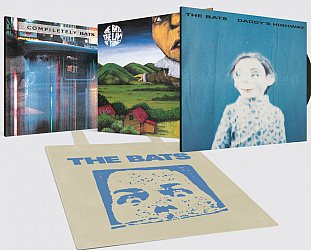
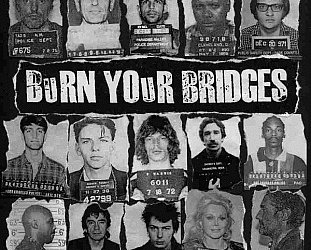
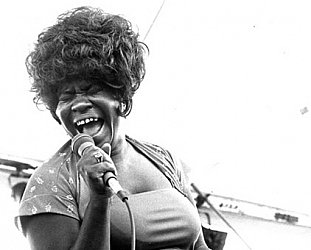
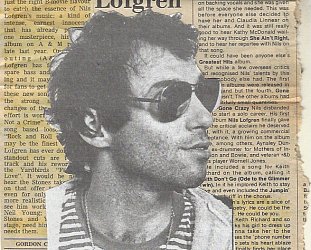

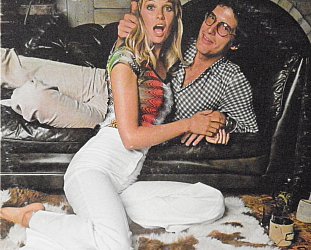
Mike ashby - May 15, 2020
Glad you pulled this (and Rickie Lee) out of obscurity. I loved it at the time and will dig it out of the vaults. Traffic from Paradise is a regular listen, beautiful tracks.
SaveI read somewhere that she had moved to new Orleans and felt truly at home for the first time. It would be nice to think this damaged beautiful soul found some peace.
Cathy Keating - Jun 7, 2021
For me, this is anything but an obscure album. It's right up there with Joni Mitchell's Hejira. Top two in my pantheon of albums by any singer/songwriter. This is Rickie's masterwork, a perfect synchrony of streetwise, solid storytelling, musically informed by jazz and inspired by West Side Story style orchestration and arrangement, unbound by too much in the way of form. The tour for which was marred by addiction, too much alcohol, heroin, and some really unkind reviews. After which she got clean and then brought us Magazine, which I also love a lot. But ultimately? This is Rickie's poetic tour de force. This is not an album of hits or formulaic songwriting. If you want to be moved down to your socks by music and singing that soars and takes you to places that you didn't even know that your soul knew, this is worth your time.
Savepost a comment